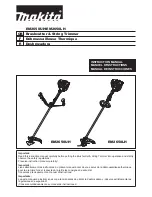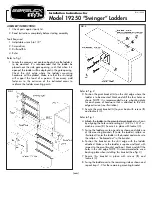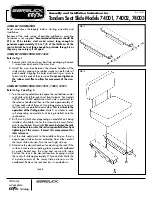
10
Safety measures
The Machinery-Tester MT 204-S has been built and tested in compliance
with the valid safety regulations and left the factory in safe and perfect
condition. In order to maintain this condition and to ensure safe instrument
operation, the user must pay attention to the references and warnings
contained within this instruction manual.
WARNING, DANGER OF ELECTRICAL SHOCK
• In order to avoid electrical shock, the valid safety and national
regulations regarding excessive contact voltages must receive utmost
attention when working with voltages exceeding 120V (60V) DC or 50V
(25V) RMS AC. The values in brackets are valid for limited ranges (as for
example medicine).
• The respective accident prevention regulations established by the
professional associations for electrical systems and equipment must be
strictly met at all times.
• Prior to any operation, ensure that test leads used, mains cable and
accessories are in perfect condition.
• The instrument may only be connected to mains voltage as indicated on
the type shield.
• The instrument may only be used within the operating ranges as
specified in the technical data section.
• Only touch test leads and test probes at handle surface provided. Never
directly touch test probes.
• The instrument may only be used in dry and clean environments. Dirt and
humidity reduce insulation resistance and may lead to electrical shocks, in
particular for high voltages.
• Never use the instrument in precipitation such as dew or rain. In case of
condensation due to temperature jumps, the instrument may not be
used.
• A perfect display of measurement values may only be ensured within the
temperature range of 0°C to +40°C.
• Prior to opening the instrument ensure that it is switched off and
disconnected from all current circuits.
• To ensure a safe measurement only use original test leads and
accessories.
• Dangerous voltages may be present at units under test caused by
insulation test or high-voltage test. Do not touch the units under test,
danger of electrical shock!
• Start any test series by earth bond resistance measurement.
• At insulation resistance, high-voltage and earth bond resistance
measurement, unit under test must be voltage-free. If necessary check
the unit is voltage-free i.e. by using a voltage tester.











































